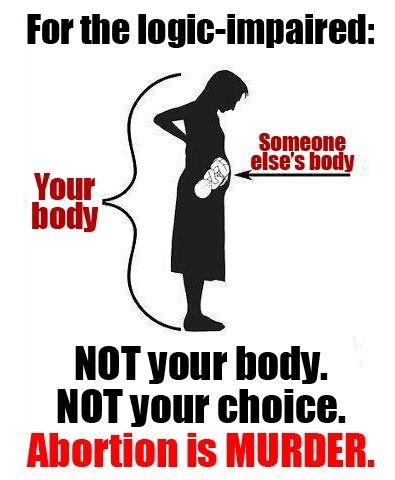Editor’s Note (4/17/24): There are two major problems with the meme this article uses as an example. First, it straw mans the pro-choice view; this is the logic problem explained in the article. Second, it’s derisive toward the pro-choice view it fails to understand; this is a tone problem. Some versions of the “your body/not your body” meme don’t have the tone problem and are used by pro-lifers respectfully and courteously, though all versions have the logic problem.
“My body, my choice” is possibly the most common slogan in defense of abortion right now and an embarrassing number of pro-life people completely misunderstand it. Consider the following popular meme:
Estimated reading time: 3 minutes.

Hilarious right? Aren’t pro-choice people stupid? Aren’t they logic-impaired?
No. Please stop.
To what is “my body” referring in the “my body, my choice” slogan? Pro-life people far too often incorrectly assume that it is the body of the unborn. If that was the case, then yes, it would be a dumb thing to say. Let’s call this the Scientifically Ignorant View. That is almost never what pro-choice people mean. They mean the parts of the woman’s body that are affected by pregnancy, such as her uterus, vagina, ovaries, etc. Those are indisputably her body parts and pregnancy affects them.
The pro-life mind is naturally inclined to be focused on the unborn, and understandably so. They are being killed daily by the thousands. Almost nothing justifies killing a human person. But to most pro-choice people, even if the unborn is a human person, women have the right to kill the unborn if they are inside her body. This is the Bodily Rights View. Shouting that the unborn is a human being does nothing to respond to the Bodily Rights View. Absolutely nothing.


